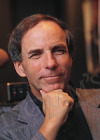HOME | ABOUT US | MEDIA KIT | CONTACT US | INQUIRE
HOME | ABOUT US | MEDIA KIT | CONTACT US | INQUIRE

A one-time offensive lineman at Ball State University, Jason Whitlock today looks pretty much like what you’d think an offensive lineman would look like roughly 30 hard-living years after hanging up his cleats.
My wife swears she used to see Jason working out at the UMKC gym, but on reflection, she’s not sure she didn’t just see him hanging out.
I met Jason in the mid-1990s when I was co-hosting a political talk show on KMBZ. In 1994, he had taken a job as a sports columnist at The Kansas City Star and also sat in on a sports show at one of our sister stations.
If I saw him wandering the halls, I would shanghai him into our studio. From day one, Jason made great copy.
A born contrarian, he was not afraid to say what was on his mind, and it rarely squared with what any other sportswriter anywhere would say.
Jason had the advantage of not going to journalism school. Today, in virtually all such schools, orthodoxy reigns. Would-be sportswriters leave school as committed to the progressive cant du jour as are their peers in the news. Not Jason.
In his fifth year at Ball State, realizing he had a better chance of ending up with a job at KFC than in the NFL, Jason got serious about school and started writing for the Ball State Daily News. After earning his bylines
at papers in Charlotte and Ann Arbor, he found his way to Kansas City.
In 1998, not for the last time, Jason became part of the story. The opening line of the AP article suggests just how unconventional Jason could be: “Jason Whitlock, sports columnist for The Kansas City Star, has been suspended pending an investigation into allegations he heckled fans during the Kansas City-New England NFL game on Oct. 11.”
Reading this today, while laughing, I still find myself asking two questions: How exactly does a sportswriter heckle fans and why is it so wrong?
The newspaper took it all very seriously. “Jason’s actions,” the paper’s managing editor at the time said, “violated one of the cardinal rules of journalism—don’t become part of the story—and
a credo of sportswriting: Never react to the taunts of fans. But, most important, what he did was offensive and unprofessional.”
The AP also noted that Jason’s “aggressive style has attracted a wide readership,” one that kept him employed at The Star until 2010.
In 2008, he became the first sportswriter to win a national journalism award from the Scripps Howard Foundation. Judges cited his “ability to seamlessly integrate sports commentary with social commentary and to challenge widely held assumptions along the racial divide.”
Today, I suspect, that the judges would want their $10,000 back. Jason has continued to challenge assumptions—just not the ones the media establishment wants challenged.
Even before he left The Star, Jason started appearing semi-regularly on national sports talk shows, bouncing around from ESPN to Fox Sports and back to ESPN, gaining more fans than critics, but louder critics than fans. In 2012, he was popular enough to survive a very funny but wildly un-PC tweet about Asian-American basketball Jeremy Lin that got him spanked by the Asian American Journalists Association.
Speaking of China, in 2019 Whitlock had the requisite moxie to take on the Chinese Communist Party and its most prominent shill, NBA superstar LeBron James.
The controver-sy began with a tweet from the general manager of the NBA’s Houston Rockets, Daryl Morey. “Fight for Freedom. Stand with
Hong Kong,” he tweeted in sympathy with the protestors flooding the streets of Hong Kong. The CCP wasn’t happy, nor was the NBA. Incredibly, NBA brass forced Morey to apologize for a sentiment shared by just about every thinking American.
The thinking American category did not include LeBron James. Given the NBA’s massive market in China, James publicly scolded Morey. “I believe he wasn’t educated on the situation at hand,” he said, adding, “Yes, we do have freedom of speech, but there can be a lot of negative that comes with that, too.”
Whitlock is genus’ just Heard him on Life, Liberty and Levin